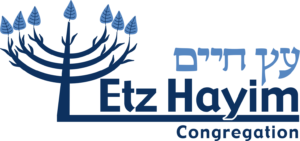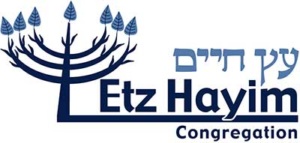Instructions for counting the omer are found on our Omer Overview Page. You can find the specific blessing for today at chabad.org.
We’re dedicating a new Sefer Torah on the first day of Shavuot. In honor of this joyous occasion, we’re using the counting of the Omer to take a whirlwind trip through the Torah
Today’s portion is Va’etchanan from the book of Deuteronomy. Today’s insight was generously provided by Stacy and Andy
Insights by Stacey V.
The parsha contains the shema, v’ahafta, and Ten Commandments, but what struck me most was the final verse: “Therefore, observe faithfully the Instruction—the laws and the rules—with which I charge you today.” This passage struck me because of how many thousands of years ago that “today” signified. Which of those laws and rules still relevant thousands of years later? Can we pick and choose which rules to follow based on our values and the relevance to our modern lives?
We could read this verse literally and take it to mean that as Jews we must each observe the rules handed down by G-d and not ever stray from those laws and rules. Most are pretty easy to follow: thou shalt not kill/commit adultery/steal (5:17). No problem. It gets decidedly trickier in 7:3 when we are warned against intermarrying. While I’m *technically* disobeying G-d’s instructions in that area, I’ve brought two additional Jews into our community, and together we’re leading a life filled with mitzvot, rachamim, and chesed. It reminds me of the quotation attributed to Voltaire that “the best is the enemy of the good.” Rabbi David Movsas had a similar idea in this essay, in which he contends that we need to strike a balance between adhering to the word of G-d while also reading between the lines in the Torah. That interpretation is “good enough” for me.
This link contains several insightful interpretations regarding this significant parsha: https://www.myjewishlearning.com/torah-portions/parashat-vaetchanan/.
Insights by Andy L.
Vaet’hanan is blessed with incredibly important and inspiring content. After all, it is the home for both the Shema and the repetition (or rather the second version) of the Ten Commandments. Here, I will focus only on the Shema, in fact only on its first verse: “Shema Israel Adonai Elohenu Adonai Ehad” (ch. 6, v. 4). Beyond doubt, this verse is the central tenet of the Jewish religion. It is the first prayer we are taught as children and the last words we attempt when death is imminent. It is the prayer we say in the morning upon arising and in the evening before we go to sleep. It also marks the conclusion of Yom Kippur, the holiest day of the Jewish year.
But what does this verse mean? There is no ambiguity about the first two words (Shema Israel = Hear, O Israel). But the four critical words (Adonai Elohenu Adonai Ehad) have a couple of different interpretations. The siddur we use in our Congregation (Siddur Sim Shalom) translates them as “Adonai is our God, Adonai Alone”. Similarly, the Torah book we use (Humash Etz Hayim) translates them as “The LORD is our God, the LORD Alone”. For me, this translation is not optimal (even though it was favored by many rabbis in the Midrash): I think it is very limiting and inward-looking. What this translation is saying is that for the Jewish people (“Hear, O Israel”) our only God is Adonai. OK, fine, but then couldn’t any other people use the same construction for their own gods, e.g. Hear, o Canaanites: our god is Baal, Baal alone? So, is this all the Shema is saying? The problem with this translation is that it discards the central contributions of the Jewish religion to the history of humankind, namely monotheism and the oneness of God.
I therefore far prefer the more traditional translation, “Adonai is our God, Adonai is One” (or, its equivalent in the older siddurim and the Hertz Humash, “The LORD Our God, the LORD is One”). This translation makes monotheism the critical aspect distinguishing Judaism from all the polytheistic religions of the time (and even of later times). But it goes even further: “God is One” is not only Judaism’s proclamation of monotheism, it is also our declaration of the Oneness, the Unity of God. It thus rejects the dualistic concepts in some religions over the centuries (e.g., Zoroastrianism or Manichaeism) or the concepts in others of three different natures or substances of God.


